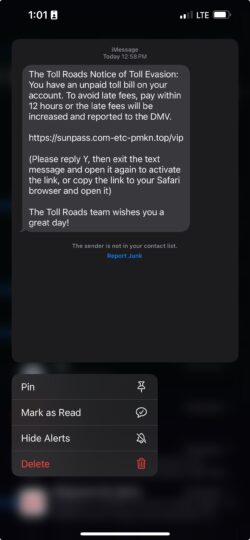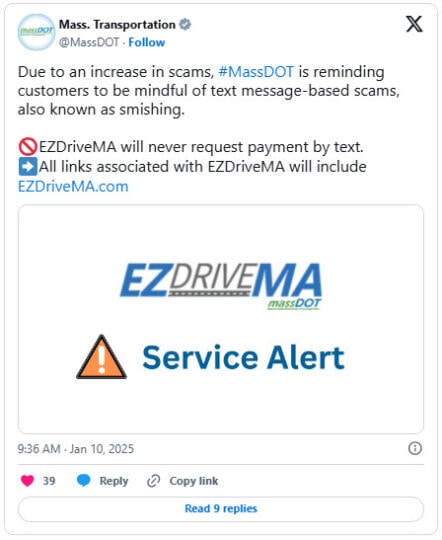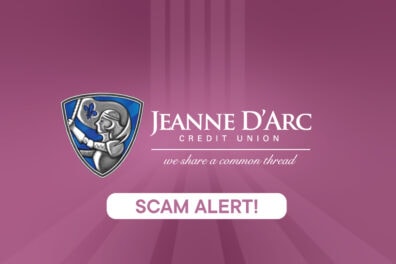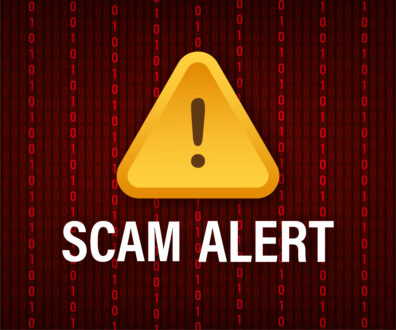Don’t Get Taken By A Fake Text


Did you get a text informing you of an overdue EZDrive toll bill that you need to pay ASAP? Maybe even a toll bill for another state? Don’t click the link! It’s not a real reminder, it’s actually a new text message scam. Read this before you type your credit card number into your phone for this or any other “reminder” text message.
The Toll Text Scam
There has recently been a significant uptick in the number of fraudulent text messages pretending to be EZDriveMA, Massachusetts’ electronic tolling system. These texts urge drivers to click a link to pay their outstanding toll bill, often for a relatively small amount, such as $6.99 or $4.15. You might be wondering why a scammer would want to steal so little at once, and it serves a couple of purposes. Not only does a smaller dollar amount not raise so many red flags, but it’s also not what the criminals are really aiming to get. What they want is your card information.
What is smishing?
The term “smishing” comes from an early-90s hacking term, phishing, which is based off of the ways scammers try to fish for information from victims. Smishing, or SMS phishing, is the text message variation of this tactic. A scammer will send a text message pretending to be legitimate, and they’ll almost always include a link in their text. If you click the link, you’ll be directed to a fake-but-convincing website where you can conveniently pay your overdue balance with a debit or credit card, unwittingly giving the cybercriminal what they were really after: your card information.
What should I look for?
 These text messages vary, and they can be quite convincing, but there are a few important things to keep an eye out for:
These text messages vary, and they can be quite convincing, but there are a few important things to keep an eye out for:
- Request to pay. “EZDriveMA will never request payment by text.” You heard it, straight from the Massachusetts Department of Transportation. If a text claiming to be from EZDrive is requesting payment, you can say with certainty that it’s not legitimate.
- Pressure to act. These scam messages will often include phrases like “to avoid excessive fees,” “to avoid a fine and keep your license,” “pay within 12 hours,” etc. to try to scare the recipient into following the link and make a payment.
- An odd URL.
Smishing messages will often include a link that includes part that looks like the real URL. Fake URLs like https://ezdrivema.com-payzk.top/l or https://ezdrivema.com-woleww.xin/p mimic the real EZDriveMA website, but also have characters in them that are out of place and don’t belong.
These fake text messages aren’t just used for EZDriveMA, criminals are pretending to be from just about every state’s electronic toll system. Not only that, fraudsters will fake package tracking/delivery and tax refund notifications to try to steal your data.
What To Do
If you do get a text message with any of the above red flags, don’t click on any links in it and don’t give out any personal information. Immediately report it to the Federal Trade Commission’s fraud reporting website or the FBI’s Internet Crime Complaint Center.
Remember, if it looks phishy, it probably is. When in doubt, don’t click on the link and look up the website or phone number yourself. For more information about keeping yourself safe, visit our Fraud & Theft Protection page here.



